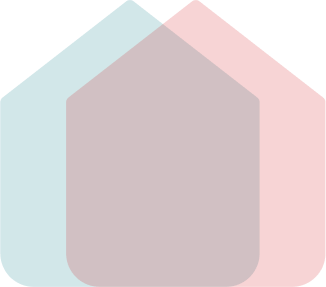MORTGAGES
Remortgage and Switcher Mortgages Ireland
Are you looking to switch your mortgage and save money with a better deal? At MortgageLine, we specialise in helping homeowners remortgage or switch mortgage providers in Ireland, unlocking lower rates, reducing monthly repayments, and accessing cashback for home improvements. Our experienced mortgage brokers guide you through every step of the process with expert, tailored advice to make switching simple and stress-free.
Lower Rates for Switchers
When your fixed term ends, many lenders offer competitive rates to win your business. This means you could reduce your monthly repayments and lock in a better deal avoiding expensive standard variable rates (SVRs) and potentially saving thousands over the term of your mortgage.
Incentives and Cashback Offers
Switching mortgage providers often comes with extra benefits such as cashback incentives, reduced arrangement fees, or flexible repayment features like payment breaks and overpayments. These options can help you fund renovations, consolidate debt, or simply improve your financial flexibility.
Looking to switch mortgage providers in Ireland? Save money, unlock better rates, and access cashback for home improvements.
Thinking of Switching Your Mortgage?
With so many options for switching mortgage providers in Ireland, it can feel overwhelming to find the best mortgage switch deals or remortgage advice in Ireland. At MortgageLine, we make the process simple and transparent, helping you switch your mortgage and borrow more if needed, or secure a mortgage rate switch that saves you money. Our expert mortgage advisers will guide you every step of the way, whether you’re switching mortgage product with the same lender or moving to a new one.
✔ Free Mortgage Review: See if you qualify for the best switch mortgage rates in Ireland.
✔ Expert Support: Step-by-step guidance on switching mortgage providers and remortgaging.
✔ Cashback & Flexible Options: Access incentives and borrow more for home improvements.
At MortgageLine, we work with clients all across Ireland from our base in Dublin. Making the switching process simple, transparent, and tailored to your needs.
📍 Serving homeowners across Ireland
Did you know?
By switching mortgage providers in Ireland, you could reduce your repayments, secure a better rate, and even unlock cashback or borrow more for home improvements all while keeping your mortgage under control.

Switcher Mortgage Calculators
Thinking of switching mortgage providers in Ireland? Our switcher mortgage calculators make it easy to see how much you could save by securing the best mortgage switch deals or a new mortgage rate switch.
Mortgage Repayment Calculator
Compare your current repayments to a new deal, and see the difference a switch could make to your monthly costs.
How Much Can I Borrow?
Estimate how much you could borrow if you want to remortgage for home improvements or consolidate debt.

How Does Switching Your Mortgage Work? A Timeline
Review Your Current Mortgage
– Check your current mortgage terms and when your fixed rate ends
– Look at interest rates, fees, and any early repayment charges
Compare and Apply
– Speak with a MortgageLine adviser to explore the best mortgage switch deals in Ireland
– Use our calculators to estimate repayments and how much you could borrow
Get Approval and Switch
– Receive Approval in Principle for your new mortgage
– Plan ahead to avoid moving to a high standard variable rate
Finalise and Enjoy Savings
– Complete the switch to your new lender or product
– Start benefiting from lower repayments, cashback, or funds for home improvements
When is the Right Time to Remortgage?
Knowing when to switch your mortgage is just as important as choosing the right deal. Here are the most common situations where a mortgage switch in Ireland makes financial sense:
Your Fixed Term is Ending
−Start shopping around 3–6 months before your fixed-rate mortgage expires. This helps you avoid being moved onto a standard variable rate (SVR), which is often higher and more unpredictable.
You're Paying Too Much
+If market rates have dropped or better offers are available, now is the time to explore your options. A switcher mortgage can lead to substantial monthly savings.
Your Property Value Has Increased
+A new property valuation could move you into a better loan-to-value (LTV) band, helping you access lower interest rates and more competitive deals.
You Need to Borrow More
+Need funds for renovations or debt consolidation? You may be able to switch mortgage and borrow more, using the equity in your home to finance home improvements at lower mortgage rates.
You Need More Flexibility
+Your current mortgage might no longer meet your needs. Switching mortgages can give you access to features like overpayments, payment breaks, or cashback offers. Even if you're mid-deal, some lenders offer incentives or reduced penalties to encourage switching. Our expert advisers can help you assess if now is the right time to switch mortgage in Ireland.


Eligibility & Benefits for Switching Mortgage Providers in Ireland

Eligibility Criteria to Switch Your Mortgage
Switching mortgage providers in Ireland can help you save, but you’ll need to meet certain requirements:
- Outstanding Mortgage Balance: Most lenders require a remaining balance of €40,000–€50,000.
- Credit Rating: A strong credit history is important for switching or remortgaging in Ireland.
- Home Equity: Ideally, you should have at least 10–20% equity in your home.
- Remaining Term: Lenders prefer mortgages with more than a few years remaining.
- Property Type and Location: Unique or high-risk properties may face restrictions.
Our experts will guide you through how to switch mortgage provider, including switching mortgage product with the same lender if it makes sense.

Benefits of Switching Mortgage
Many homeowners miss out on savings simply because they’ve never reviewed their mortgage. Switching your mortgage gives you access to:
- Lower interest rates to cut your monthly repayments
- Access to cashback or fee-free mortgage switch deals
- Flexible options like payment breaks or overpayments
- The ability to borrow more for home improvements
We’ll guide you through every step, making the switch stress-free and worthwhile.
Get Started Switching Your Mortgage Provider
1. Review Your Current Mortgage Provider
– Check your current lender’s interest rate, terms, and any early repayment penalties
– Note your outstanding mortgage balance and estimated home valuation
2. Check Eligibility and Compare Providers
– We’ll help you assess your income, repayment ability and home equity
– Compare the best mortgage switcher deals available from other mortgage providers in Ireland
3. Submit and Finalise Your Switch
– Submit your application to switch mortgage provider with expert guidance
– Finalise the transfer to your new lender and start enjoying lower repayments, cashback and flexible features.
Our advisers will support you at every stage, guiding you through every step of switching mortgage providers in Ireland. Save time, money, and switch with confidence!
Important Information on Mortgage Regulations and Risks
Mortgage Regulations
If you’re applying for a remortgage in Ireland, it’s important to understand the key lending rules set by the Central Bank of Ireland. These mortgage regulations are designed to promote responsible borrowing and long-term financial stability for both lenders and buyers.
Key Lending Limits for Mortgages
There are two main rules that apply to mortgage lending in Ireland:
- Loan-to-Income (LTI) Limit: First time home buyers can typically borrow up to 4 times your gross annual income. This is higher than the standard 3.5 times income allowed for other borrowers.
- Loan-to-Value (LTV) Limit: You must provide a minimum deposit of 10%, meaning you can borrow up to 90% of the property’s value.
These limits apply whether you’re applying for a standard first home buyer mortgage or through a first time buyer scheme such as Help to Buy or the First Home Scheme.
Straight Mortgage Switchers do not have to fit into these lending rules but the banks will still have their own lending and policy criteria.
The Central Bank regularly reviews these measures to ensure they remain suitable for Ireland’s housing market and economic conditions. The most recent changes, introduced in January 2023, reflect updated guidance to support sustainable homeownership.
Mortgage Warnings
When applying for a first time home buyer loan, it’s essential to be aware of the potential risks and responsibilities involved:
- Failure to meet your repayments may lead to the loss of your home.
- Early repayment charges may apply on fixed-rate mortgage loans.
- Missed repayments will result in arrears and can damage your credit rating.
- Long-term borrowing may lead to higher total repayment costs.
- Monthly repayments may increase, especially on variable rate mortgages.
- At the end of an interest-only period, you will still owe the full amount borrowed.
- Lenders can change rates on variable mortgage products at any time.
Always consult a qualified mortgage broker before committing to a home owner mortgage, especially if you’re unsure which loan type is best for your needs.
Frequently Asked Questions
Our clients frequently ask us various questions. Some of them are listed below:
What Are the Primary Benefits of Remortgageing My Property in Ireland?
Remortgaging offers several benefits, primarily aimed at reducing your financial burden. Securing a lower interest rate can substantially lower your monthly repayments and the total interest paid over the life of the mortgage.
Additionally, remortgaging gives you the flexibility to adjust your mortgage terms or move into a better loan-to-value (LTV) band if your property value has increased.
Read more: Why You Should Switch Your Mortgage
When Should I Consider Switching Mortgage Providers in Ireland?
The ideal time to switch is before your current fixed-rate deal expires (typically 3–6 months beforehand). You might also consider switching if property values have increased or if you’re currently on a high standard variable rate (SVR).
Switching mortgage providers can offer substantial savings and greater flexibility based on your changing financial circumstances.
Read more: Can You Really Save by Switching Mortgage Lenders? Costs and Benefits Explained
What Costs Should I Consider Before Deciding to Remortgage?
Before you remortgage in Ireland, it’s important to factor in all potential costs.
You could face early repayment charges from your current lender, particularly if you are still within a fixed-rate term.
Other costs to consider include legal fees, valuation fees, and arrangement fees with your new lender when switching mortgage providers.
If you’re consolidating debts by switching, be cautious; extending short-term debt across a longer mortgage term may increase your overall cost. Our team provides expert remortgage advice in Ireland to help you make an informed decision.
How Can Remortgaging Help Me Fund Home Improvements?
If you’re wondering how to remortgage for home improvements, releasing equity from your property could be a smart move.
As your property’s value increases, switching mortgages in Ireland allows you to borrow more, often at a lower rate compared to personal loans or credit cards.
This lump sum can fund renovations while keeping borrowing costs manageable. However, always make sure that the added debt is justified by an increase in your property’s value.
Our advisers can help you switch your mortgage and borrow more with the right lender.
What Should I Look for in a New Mortgage Deal When Considering Switching Mortgage Providers in Ireland?
When exploring switching mortgage providers in Ireland, the priority is finding a lower rate to save on monthly repayments.
Consider the mortgage type (fixed or variable) and the length of the deal to suit your financial goals.
Look out for the best mortgage switch deals that offer flexibility like overpayments, payment holidays, or cashback incentives.
Whether you are switching mortgage product with the same lender or moving to a new one, our advisers are here to help you find the most competitive package.
How Much Can a Switcher Borrow in Ireland?
When you switch a mortgage in Ireland, you can typically borrow up to 3.5 times your gross annual income.
If you’re applying jointly, the combined income allows you to increase your borrowing potential significantly.
In most cases, you can borrow up to 90% of your property’s current market value.
Plus, many lenders offer terms up to 35 years, helping to keep repayments manageable.
It is also worth noting that Central bank lending restrictions do not apply to Straight Switchers so you may be able to borrow more than 3.5 times Income if needed.
Whether you’re switching mortgages or staying with your current lender, we’ll make sure you get the best possible terms.
Who Qualifies for a Switching Mortgage in Ireland?
To be eligible for a switcher mortgage in Ireland, most lenders will require:
- Loan-to-Value (LTV) below 90%: meaning you must have at least 10% equity in your home
- Good credit history free from recent defaults, arrears, or bankruptcies
- Stable income assessed at up to 3.5 times your gross annual income (or combined income for joint applicants)
- Mortgage in good standing with a solid repayment history and no recent issues
Ready to Switch and Save?
Whether you’re looking for the best mortgage switch deals, wondering how to remortgage for home improvements, or just exploring options, our Dublin-based advisers are here to help.




